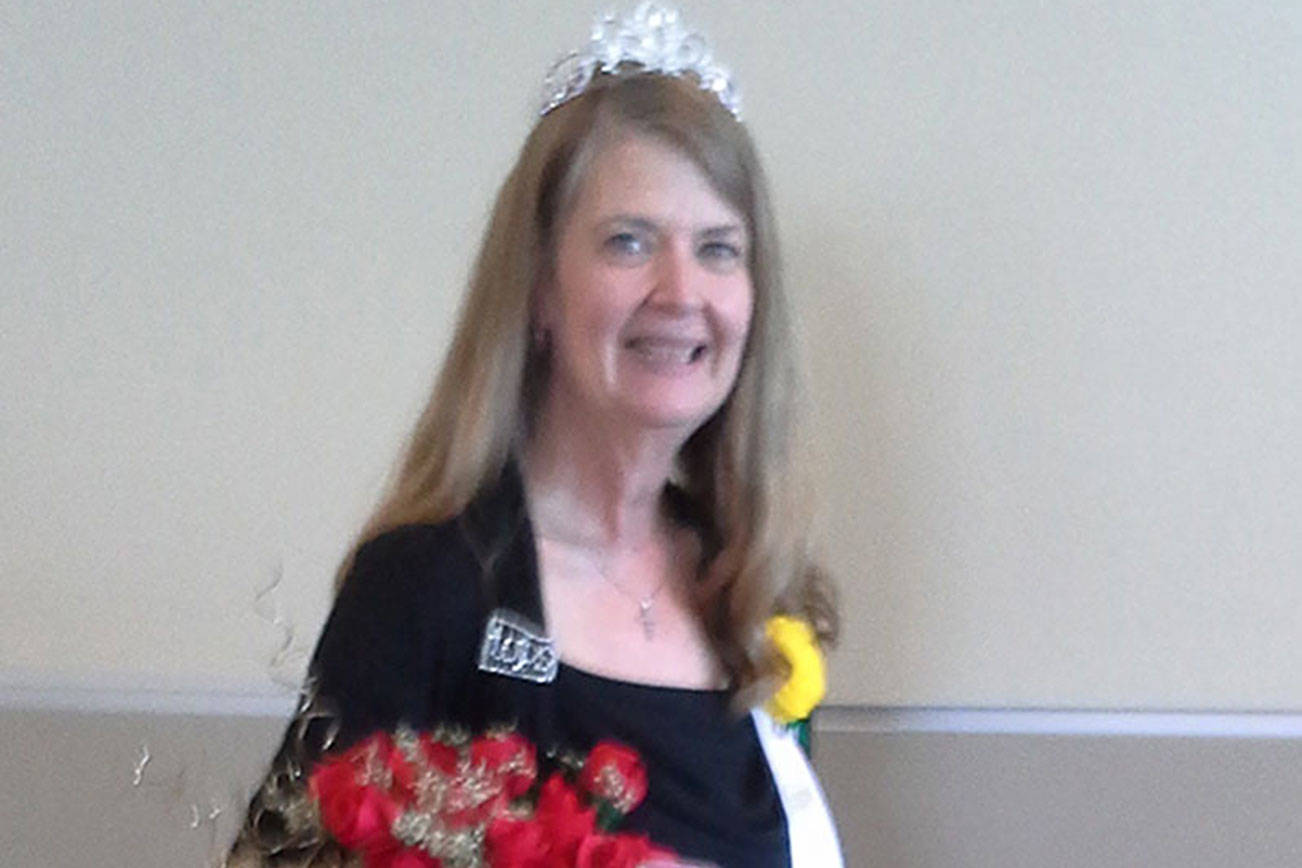Losing weight is one thing, Cheri Jackson knows, but keeping it off is another.
That’s why even after losing 113 pounds and being crowned TOPS’ (Taking Pounds Off Sensibly) 2016 Washington Queen for losing the most weight in the state since she started the program, the Enumclaw resident still plans to stick with the nonprofit program.
Before signing up with TOPS, Jackson had a volatile relationship with food and exercise.
In high school, she suffered from anorexia — she didn’t eat, and exacerbated her disease by over exercising.
“They took me out of school. It was really serious,” Jackson said, adding that she weighed 93 pounds.
She wasn’t sent anywhere for inpatient treatment, but her mother had her “go to the doctors twice a week and have blood tests to make sure everything was going OK.”
Jackson eventually brought her eating and exercise habits back under control because she wanted to go back to school.
But when Jackson entered her 30s, she started slipping — but in the opposite direction.
“Truthfully, in my 30s, I had a hysterectomy and that’s when it all went straight down. I started eating… I think maybe because I wanted more kids, and I couldn’t have more kids,” she said.
As Jackson ate more and exercised less, she found herself in constant pain, so she went to her doctor to ask about weight-loss surgery.
“You just need to get up and start moving,” he told Jackson, who was put off by his answer and delayed any sort of weight-loss action for another five or so years.
It wasn’t until she had to receive steroid shots to manage the pain of two herniated disks in her lower back did she finally call up a friend who was already involved with TOPS.
“This was it. Either I’m going to sit on a couch and be big and heavy and not have a life, or I’m going to do something,” she said. “It was my last ditch effort.”
Last ditch or no, Jackson was successful in her weight-loss endeavor, and was flown out to Little Rock, Arkansas on July 11 to celebrate her achievement with other TOPS royalty at the International Recognition Days celebration.
GROUP SUPPORT, PROFESSIONAL INFORMATION
Eating more consciously and exercising more regularly certainly contributed to Jackson’s success with TOPS.
But one thing she feels helped her out more than anything else was the support she received from her local TOPS chapter, especially surrounding how she talked negatively about food and her weight.
“I used to say horrible things, and they’d say, ‘Are you serious?’ Yeah, I’m serious,” Jackson said, adding how she’d call herself a cow or a whale. “They started supporting me — ‘You need to stop. Instead of saying something like that, say something nice about yourself. Find something nice to say about yourself.’”
According to TOPS Wellness Manager Maggie Thorison, this sort of group support is one of the reasons why this nonprofit works better than other programs.
“Sometimes you see or hear the terms ‘good foods’ and ‘bad foods,’ or as so many of us have said, ‘I was so bad last night, I had a slice of cake,’ or, ‘I was really good today, I didn’t have many carbs at dinner,’” Thorison said. “While statements like, ‘I was good,’ or, ‘I was bad,’ may seem kind of harmless, in a way when you’re referring to foods as ‘good’ or ‘bad,’… you’re saying you’re good or bad when you eat those foods.”
This is where many meal plans fall short and how group support can pick up the slack, Thorison said. Meal plans can tell you what to eat and how much, but it’s much harder to be introspective about your eating habits — the how and why you eat — on your own, instead of in a group setting.
Of course, TOPS doesn’t expect every group to be able to do this without some help, and since most local chapters are led by volunteers with little to no nutritional background or wellness expertise, the nonprofit works to provide easily digestible professional information to their members.
“There’s a lot of nutrition information out there, whether you see something on TV, maybe something pops up on your Facebook news feed, maybe a friend has this new diet she’s been trying. Unfortunately there’s a lot of bad or misleading information out there, and it can be really difficult for people to navigate,” Thorison said. “We provide (chapters) with resources such as programs, which is essentially scripted information geared toward the lay person… all of those materials are either created by or reviewed by medical doctors, registered dietitians and other wellness experts.”
This sort of flexibility allows individual chapters to determine what their needs are, as opposed to trying to fit their members to a particular meal program or exercise regimen.
“We don’t tell members what to eat. We don’t dictate one specific food plan or try to sell foods. We know that different tools work for different people,” Thorison said. “Everyone is unique, and of course we want members to be safe before anything else.”
That being said, there are still pitfalls people can fall into.
Since TOPS chapters are led by volunteers, there is no screening process for serious eating disorders.
While the information TOPS provides its chapters supports healthy eating and exercising habits, there is little information provided about preventing or treating an eating disorder, Thorison said, adding that all TOPS members are encouraged to check in with a primary physician before making changes to their meal plan or exercise routine, and to check in with them regularly to make sure they are staying healthy.
You can find a local meeting at www.tops.org/TOPS/FindAMeeting or by calling 800-932-8677. Membership is $32 a year, plus any chapter fees.


